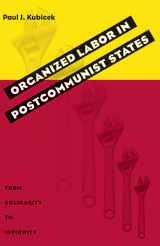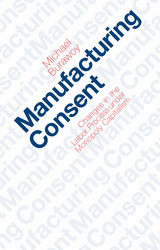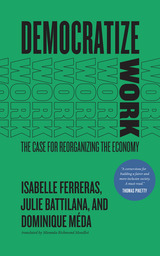Cloth: 978-0-674-35875-1
Library of Congress Classification HD6757.L4813
Dewey Decimal Classification 331.8809485
Because the world has long seen Sweden as a pioneer of democratic socialism, the success or failure of social experiments there has had momentous impact on the development of similar programs elsewhere. Now, in this penetrating inquiry undertaken by one of Sweden's leading political scientists, the problems and practices of Swedish trade unions are fully revealed.
Leif Lewin is interested in finding answers to several central questions: How “democratic” are Sweden's unions? How are they governed? How have they avoided the institutional inequities that plague some American unions? What sacrifices have Swedish unions had to make in order to solve their problems?
Lewin has gone directly to the people concerned, receiving from some 3,000 union members and leaders the information that forms the basis of his study. But his book is more than an empirical analysis of trade union democracy. It is also a strikingly successful example for all social scientists who have struggled to apply a hypothetical model of “democracy” to the ambiguous, often turbulent world around them. Above all, Lewin shows how the democratic ideal of individual intellectual and moral enrichment can be approached through participation in collective decision making. Thoughtful and balanced, his book addresses many of the problems that are just now being faced by social planners, economists, and union organizers everywhere.
See other books on: Government & Business | Labor unions | Lewin, Leif | Nordic Countries | Sweden
See other titles from Harvard University Press



























